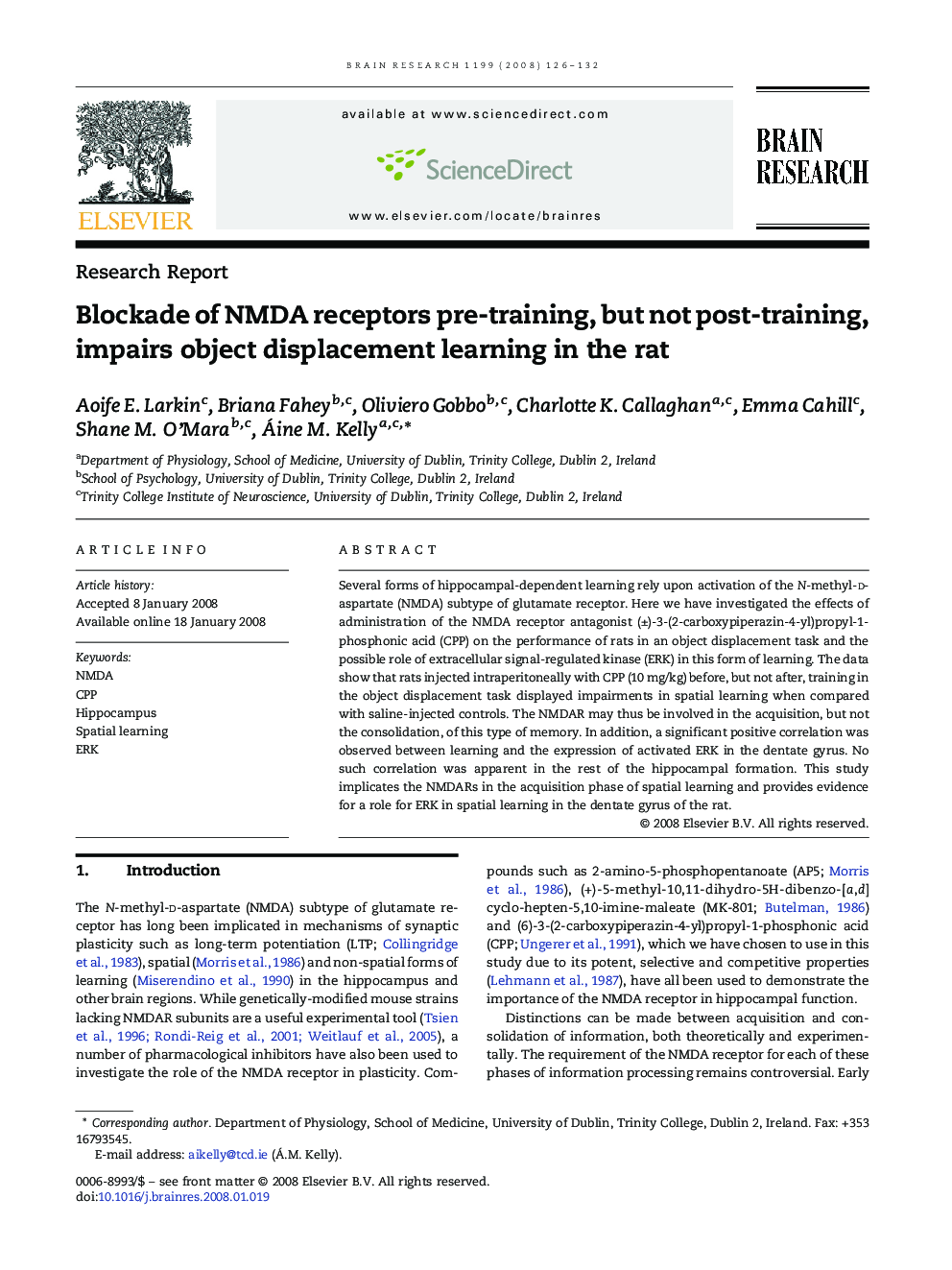| Article ID | Journal | Published Year | Pages | File Type |
|---|---|---|---|---|
| 4329987 | Brain Research | 2008 | 7 Pages |
Several forms of hippocampal-dependent learning rely upon activation of the N-methyl-d-aspartate (NMDA) subtype of glutamate receptor. Here we have investigated the effects of administration of the NMDA receptor antagonist (±)-3-(2-carboxypiperazin-4-yl)propyl-1-phosphonic acid (CPP) on the performance of rats in an object displacement task and the possible role of extracellular signal-regulated kinase (ERK) in this form of learning. The data show that rats injected intraperitoneally with CPP (10 mg/kg) before, but not after, training in the object displacement task displayed impairments in spatial learning when compared with saline-injected controls. The NMDAR may thus be involved in the acquisition, but not the consolidation, of this type of memory. In addition, a significant positive correlation was observed between learning and the expression of activated ERK in the dentate gyrus. No such correlation was apparent in the rest of the hippocampal formation. This study implicates the NMDARs in the acquisition phase of spatial learning and provides evidence for a role for ERK in spatial learning in the dentate gyrus of the rat.
